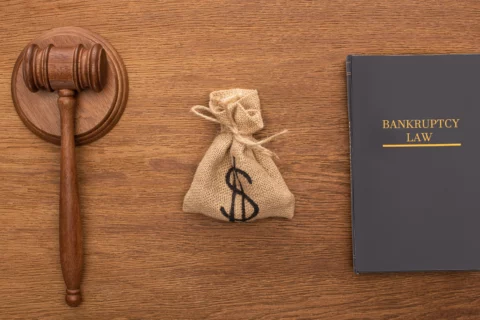Car Loans and Filing Bankruptcy
People struggling with debt often start considering bankruptcy. Rightly so, since financial problems often make people exhaust all possible debt-relief options. Furthermore, a declaration of bankruptcy is not as bad as what people think it is. It is not something that one should avoid. A bankruptcy case, in contrast, can be seen as a window of opportunity. It can allow an individual to deal with debts and eventually rebuild his or her future.
Now if you are already planning to file bankruptcy, be aware that there’s a lot that you must learn. Bankruptcy laws are quite complex. A bankruptcy petition can help with your debt problems and allow you to have a fresh start in life, but note that no two bankruptcies are the same. Several types of bankruptcy are appropriate for different types of debt, varying priorities, and specific circumstances.
A Chapter 13 petition for bankruptcy, for example, enables a bankrupt individual to restructure and reorganize his or her finances. Proceeding with restructuring and filing for bankruptcy can allow an individual to bring current most monthly payments for secured loans.
(Note that none of these things must be taken in an absolute way. No two bankruptcy cases are the same. As such, the specifics of your would-be bankruptcy filing will factor in and will affect how the actual proceedings will go).
 Before learning how to file, those considering bankruptcy must first know how doing so can help with debt relief. Crucial in filing Chapter 13 bankruptcy cases is the debt repayment plan, which should allow you to repay secured and unsecured debts. This is done within a certain period. If you filed for bankruptcy, you will propose a repayment plan that will run for three or five years. The actual length will depend on the approval of the bankruptcy court, which will carefully review all the forms and supporting documents you submit.
Before learning how to file, those considering bankruptcy must first know how doing so can help with debt relief. Crucial in filing Chapter 13 bankruptcy cases is the debt repayment plan, which should allow you to repay secured and unsecured debts. This is done within a certain period. If you filed for bankruptcy, you will propose a repayment plan that will run for three or five years. The actual length will depend on the approval of the bankruptcy court, which will carefully review all the forms and supporting documents you submit.
Now, in case you have an existing car loan, such could be part of this payment plan. However, depending on your actual situation, there are also instances where monthly payments are made as is. This means that your car loan will not be part of your filing and will remain the same, similar to before bankruptcy was filed. Experienced bankruptcy attorneys can explain the implications of these two scenarios in more detail.
Your Bankruptcy Chapter 13 payment plan can help stop foreclosure or repossession of your car, home, and other personal property. Such is the reason why most decide to file for bankruptcy under this chapter. You will also get bankruptcy protection from the federal court through an automatic stay. This would mean that lenders and debt collectors cannot ask for payment or even contact you anymore, and is key when you want to stop creditor harassment.
Also, your Chapter 13 debt repayment plan will allow you to pay back student loans, alimony, child support, or recent taxes, all of which will likely not be wiped out by a Chapter 7 bankruptcy discharge.
As mentioned, declaring bankruptcy under Chapter 13 will enable you to save your car from repossession and include your car loan with other debts you have to pay off through your repayment plan. Following the usual bankruptcy process, you could even reduce the principal balance (or even the interest rate) of your original car loan. Experienced bankruptcy lawyers can explain how this can be done.
Similar to what was stated above, in a Chapter 13 declaration of bankruptcy, your trustee will not liquidate your assets (in contrast to a Chapter 7 proceeding). This means that your assets, whether tagged as exempt or non-exempt, will not be liquidated to pay back your lenders. That essentially means that you can keep your car. However, if there is nonexempt equity on your car, your unsecured creditors must be paid an amount that is equal to that nonexempt portion. This will vary for each case, and your would-be lawyer can discuss this further.
Chapter 13 bankruptcy proceedings are generally longer than other forms of consumer bankruptcy, but its benefits outweigh the lengthy time involved. Also, despite the fact that your Chapter 13 bankruptcy filing will stay on credit reports for the next seven years, your credit scores will still eventually improve. As such, because it is generally an ideal way to deal with debts, people still opt to file bankruptcy cases under this Chapter.
Before you declare bankruptcy, meet with a reliable bankruptcy attorney and discuss your debt reorganization plans with a credit counselor. Get a trusted bankruptcy lawyer from Cutler Bankruptcy who can help with paperwork, supporting documents, and bankruptcy forms that you must submit to your trustee. Call us at (224) 836-4956 for a consultation.


